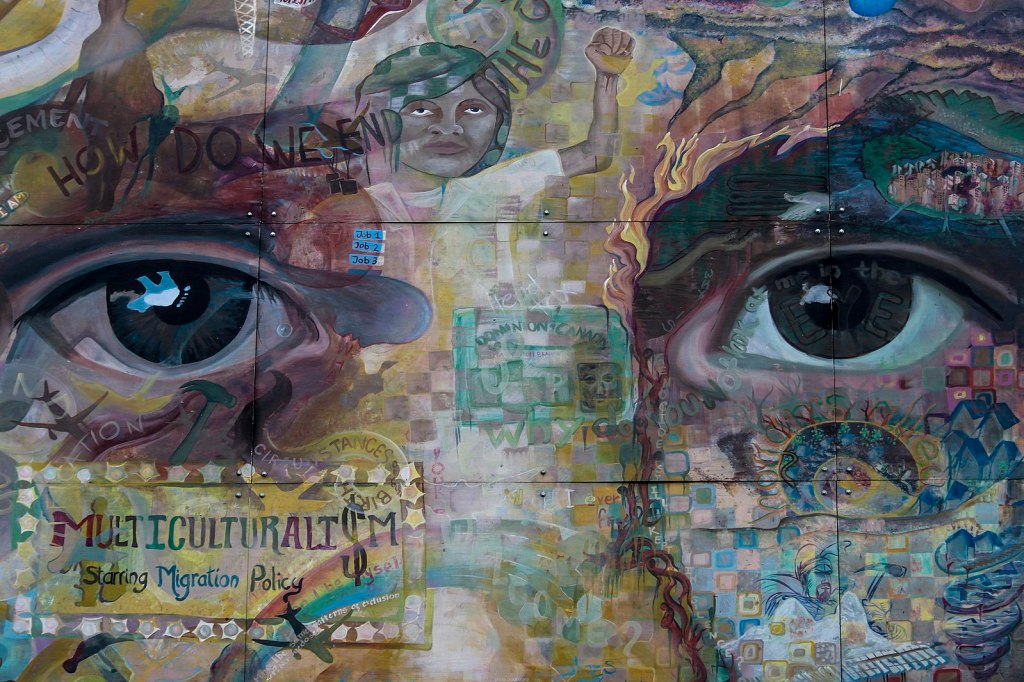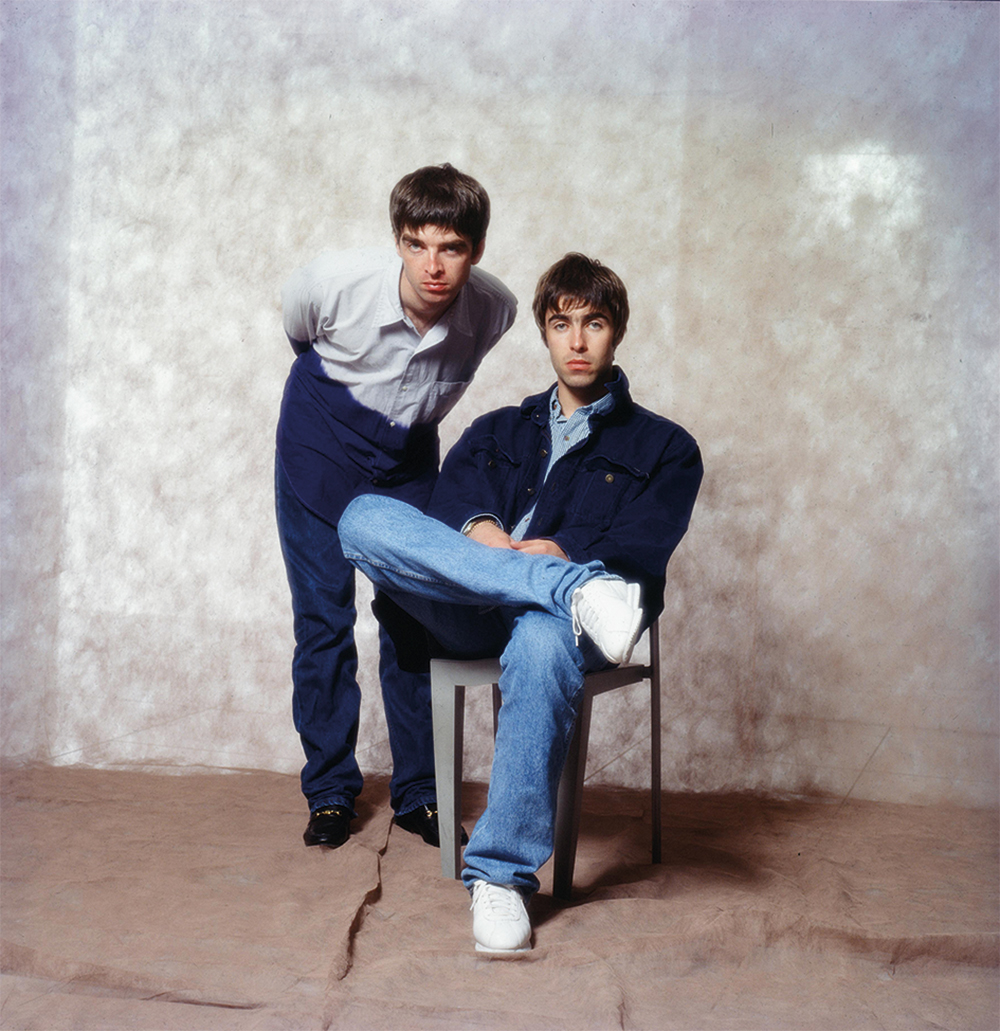In their recent book on the Middle Ages provocatively called The Bright Ages, Matthew Gabriele and David Perry make the uncontroversial but often ignored point that the medieval period was multilingual and multicultural. (Listen to my conversation with them in the latest episode of the podcast.) It was, for the most part, seen as neither a virtue nor a vice that a city or region would contain various people from various places speaking various languages. It was a fact. That doesn’t mean that certain people or certain languages weren’t the objects of hatred — the burning of thousands of copies of the Talmud in Paris in 1242 is a case in point. But cities or regions didn’t exist in silos. It was a period of great cultural exchange.
One might speak multiple languages — raised in one and taught another, or three, at school — while at the same time view someone else from the same country — can you spell Italy?—who otherwise looked like oneself as a foreigner. Allegiances were complex, determined by economic, regional, familial and religious interests, including within Catholicism. (To view the medieval period as monolithically Catholic, as if there weren’t various kinds of Catholicism, Orthodoxies and proto-Protestantism, is to paint with the broadest of strokes.)
I mention this because it puts into perspective how banal our obsession with praising multiculturalism for the sake of multiculturalism can be. Take Rebecca Mead’s breathless piece in the New Yorker praising multicultural London and giddily sharing how her son is picking up what linguists now call Multicultural London English — or M.L.E.:
Hall explained to me that, when groups who speak in different ways come into frequent contact, people often shift the way they speak, eventually sharing speech styles and modes of pronunciation. If you have an extremely mixed group—one whose members speak, say, ten different languages—speakers will settle on linguistic features that allow them to do what they most want to do, which is communicate. “Ultimately, people want to sound like one another,” Hall told me. Linguists use the term “accommodation” to describe the way that individuals change how they speak to align with one another. “It’s not cultural appropriation, it’s not rude, it’s just what we do,” Hall said. We accommodate ourselves to others’ speech because we want to get along; we want to understand, and to be understood.
Yes, well, languages change. They always have. Like all cultures, languages are the result of the interaction of people from various places. To lament or laud this is like lamenting or lauding grass.
But the piece takes a slightly more interesting turn halfway through. Mead has moved to London, she tells us, for a variety of reasons, one of which is to be closer to her mother. This means sacrifices, too. But her hope for her son is that the move will broaden his horizons:
I have known many city dwellers whose affection for the structures of their own childhood is so great that, upon becoming parents, they wish to replicate them, and thus yearn to move to the country or to the suburbs. I do not share this longing. Though I am delighted by the pleasures of introducing my son to the landscape of my childhood—to have him bounce on the same seafront trampolines as I did, and race along the same cliffside slopes—there is no sense in which I want to reduce his world to the narrowness of that from which I came.
What I do want to grant him from my own childhood experience is the corollary of that narrowness. I want to cultivate in him a sense of ambition and a quest to roam—attributes that, in my own adolescent experience, were nurtured by a sense of never quite feeling at home in my home.
By uprooting my son just as he was about to begin applying to high schools, I placed his childhood definitively within one retrospective landscape and offered him an unknown vista for his adolescence. I am excited for what this new territory will offer him.
But there’s a cost, too, in leaving home. In the recent issue of Modern Age, Bill Kaufman reviews Grace Olmstead’s recent book Uprooted: Recovering the Legacy of the Places We’ve Left Behind. Olmstead writes that leaving home is mostly praised by elites:
This disregard—even contempt—for rootedness is an article of faith in the ruling class, which is, almost to a man, uprooted and glad of it.
Here the reader hears echoes of Christopher Lasch, particularly his posthumously published and prophetic The Revolt of the Elites and the Betrayal of Democracy. Writes Olmstead: “The wealthy and corporate success stories of our world are constantly jetting from coast to coast, country to country, time zone to time zone—and they encourage the rest of us to do the same.”
But the cost to local economies and personal costs of leaving a community in search of fame and fortune often goes uncounted. Olmstead writes: “Rootedness and perennial belonging often make sense to us on a scientific, ecological level. We know…what the soil needs for biological health and flourishing. But there seems to be a widespread belief in our society that these principles do not apply to people.”
In other news
Ted Gioia’s not sure which streaming service will win out in the end, but he’s pretty sure it won’t be Netflix: “Netflix is the Betamax of today. It has pursued the wrong strategy, and doubled down at every opportunity. The company has spent billions of dollars on proprietary films and TV shows in order to create a position of market dominance with a totally closed system.” They won’t be able to do it, Gioia argues, and the company will go down in flames if they stick to that strategy.
Speaking of moving, Keith Miller reviews Gary Shteyngart’s new novel Our Country Friends:
Gary Shteyngart has quietly become one of the most talented comic writers working in English today . . . Our Country Friends builds on Shteyngart’s own experiences during the first phase of the coronavirus pandemic. In the spring of 2020, a Russian-American couple, the Senderovskys, invite three old friends and a couple of newer ones to flee the plague-ridden city and hunker down with them in upstate New York for the duration. Here they have re-created a version of the ‘international’ camps where they spent childhood summers with other first- and second-generation immigrants, setting a little semicircle of ‘bungalows’ opposite the big house, which soon turns out not to be quite as big as the reader may have initially imagined – not big enough, at any rate, to contain the shenanigans that soon unfold.”
Helena Smith reports: “For nearly two millennia, the Little Theatre of Epidavros lay underground. Its engraved seats, concentric and tiered, belonged to a world of roots; in this case the roots of an olive grove owned by Christos Zafiris, a local farmer. ‘They say that had it not been for pigs digging at the soil, we might never have known of its existence,’ says Prof Vassilis Lambrinoudakis. ‘Until the appearance of the stones in 1970, the theatre was a secret hidden under the earth for 18 centuries.’”
A history of the dropout:
In November 1967, Robin Farquharson “dropped out”. After losing his job as a computer programmer along with the flat he’d been renting, he decided to forgo the dwindling funds in his bank account and live on London’s streets. In his short memoir Drop Out! (1968), Farquharson recounted his homeless wanderings and loose associations with London’s underground scene, moving from all-night cafés to “psychedelic” nightclubs; he described being robbed and beaten in the street, and his first experience of LSD. At 37, Farquharson felt too old to be a hippy, nonetheless he saw his disaffiliation within the context of a wider movement towards social and personal liberation, inspired by Timothy Leary’s injunction to “turn on, tune in, drop out”: words he interpreted as a call to “rid yourself of responsibility, quit the rat-race. Don’t obey society’s paralysing conventions … Step out of the trap.”
These Yiddish novels may soon be available in English.
The readerly dictator: “The link between mass-murdering dictators and the gentle occupation of reading and writing books is a curious one, but it definitely exists. Mao was a much-praised practitioner of traditional Chinese poetry; Hitler was widely if haphazardly read, dictated Mein Kampf and was a fan of Karl May’s Wild West stories; and Stalin, as Geoffrey Roberts shows, took books at least as seriously as the purging of foes, real and imagined.”
Why we need more Milton:
If there is any project with which Milton is associated, it’s the cause of free speech. Moshenska describes the poet’s Areopagitica—written in response to the Licensing Order of 1643, which facilitated pre-publication censorship—as the most “electrifying and famous prose that he ever produced.” Certainly, outside of Paradise Lost, it’s Milton at his most quotable . . .
Transforming Areopagitica into a mission statement for the ACLU misses much of what’s truly radical in Milton, however. When he writes that “a good book is the precious life-blood of a master spirit,” it’s neither conceit nor metaphor but a statement of metaphysical reality. True to the ethos of the inspired prophet-poet that he is, Milton understands words to be conscious energies. His defense isn’t reducible to either of the two major arguments advanced today: the strategic claim that speech shouldn’t be restricted because one day our adversaries might censor us and the moral claim that speech is an inviolate right regardless of its content. Milton, instead, asserts that “Good and evil we know in the field of this world grew up together almost inseparably; and the knowledge of good is so involved and interwoven with the knowledge of evil” that he “cannot praise a fugitive and cloistered virtue, unexercised and unbreathed.” If wicked, vile, and offensive words are banned, ignorance of evil means people have no knowledge of its contrary, so there is only “knowing good by evil.”

























